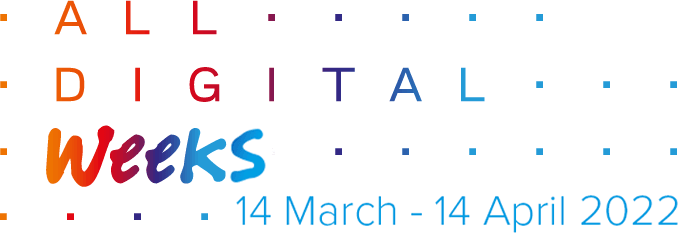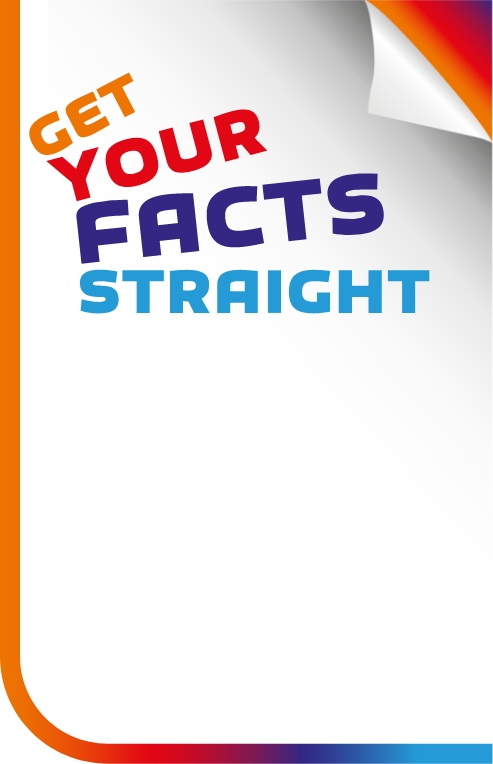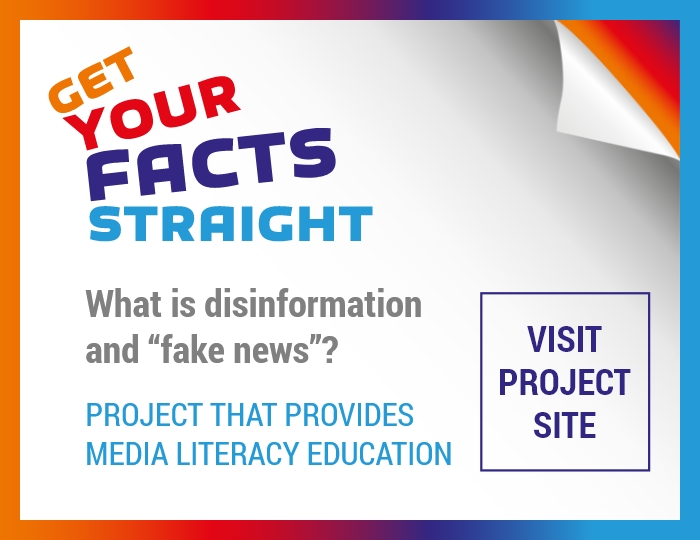2020: Digital Skills for critical thinking and employability
 AUPEX: FOLK-HIGH-SCHOOL ASSOCIATION OF EXTREMADURA for the second time was the regional partner for ALL DIGITAL Week.
AUPEX: FOLK-HIGH-SCHOOL ASSOCIATION OF EXTREMADURA for the second time was the regional partner for ALL DIGITAL Week.
AUPEX designed a number of face-to-face actions to be implemented during the All Digital Week 2020 campaign that finally had to be either adapted to online formats or cancelled.
The capacity to react and adapt to the new situation in a big team is what AUPEX is mostly proud of. The priority was always to keep on being facilitators for the users, especially for online procedures, fight against disinformation and acquire those digital skills required to make effective use of digital technologies.
On the other hand, All Digital Week has helped highlight the importance of digital skills and critical thinking in a very uncertain scenario. This has contributed to identifying not only opportunities but important challenges to be faced by public institutions and different stakeholders that have identified digital competence centres as key partners for the new normal.
The potential of digital technologies and skills for remote working, personal and professional development, social and labour inclusion and democracy is now more clear than ever.
 Some new public and private initiatives emerged due to needs and social movements against coronavirus, most of them based on digital technologies and, therefore, a level of digital skills was required in order to make a responsible, safe and critical use of technology.
Some new public and private initiatives emerged due to needs and social movements against coronavirus, most of them based on digital technologies and, therefore, a level of digital skills was required in order to make a responsible, safe and critical use of technology.
AUPEX made special efforts on promoting media literacy and critical thinking during the All Digital Week and lockdown time.
The first and the main activity developed during the 2020 campaign was the Online Assistance and Support Service, which allowed users with a low level of digital skills or specific training needs get in touch with e-Facilitators who could guide them through personal, flexible and adapted training, online procedures demos and disinformation awareness-raising activities.
 AUPEX boosted and took part in the movement Makers against Coronavirus, including these activities as part of the All Digital Week campaign, in order to foster those digital and soft skills required in a more digital and hyper-connected society. Together with maker spaces and other organizations, AUPEX team, coordinators and facilitators, and digital competence centre users designed and printed over 1,000 face shields during the All Digital Week – reaching over 5,000 at the end of April. Shields were distributed to healthcare workers, supermarkets, bakeries, pharmacies, etc.
AUPEX boosted and took part in the movement Makers against Coronavirus, including these activities as part of the All Digital Week campaign, in order to foster those digital and soft skills required in a more digital and hyper-connected society. Together with maker spaces and other organizations, AUPEX team, coordinators and facilitators, and digital competence centre users designed and printed over 1,000 face shields during the All Digital Week – reaching over 5,000 at the end of April. Shields were distributed to healthcare workers, supermarkets, bakeries, pharmacies, etc.
 As mentioned above, media literacy is a priority for AUPEX, now more than ever. Hoaxes, dis- and misinformation have been rapidly spreading during COVID-19 crisis, especially due to the lack of critical thinking. In February 2019, AUPEX launched www.infopirina.org, “a natural remedy against the virus of disinformation, based on the natural principles of critical thinking and media literacy”.
As mentioned above, media literacy is a priority for AUPEX, now more than ever. Hoaxes, dis- and misinformation have been rapidly spreading during COVID-19 crisis, especially due to the lack of critical thinking. In February 2019, AUPEX launched www.infopirina.org, “a natural remedy against the virus of disinformation, based on the natural principles of critical thinking and media literacy”.
The tool was widely used during the All Digital Week in those online assistance and support video calls with users, providing them with resources, tips, and tools to identify disinformation and better understand the importance of media literacy. During the All Digital Week, AUPEX helped young people, adults with a low level of digital skills and other vulnerable groups improve their digital skills, as one the priorities in this campaign, and also as part of the strategic priorities of the organization.
 AUPEX kept in the agenda two webinars which reached over 280 participants.
AUPEX kept in the agenda two webinars which reached over 280 participants.
First of them highlighted the role of digital technologies to the world of gastronomy, analyzing the impact the new digital skills required by those professionals in the world of cooking. The webinar was run by the coordinator of the project “Lab-e – Digital Gastronomy Lab”, José Francisco Pelaez.
 For the second webinar, AUPEX invited Laura del Río, project coordinator at Maldito Bulo (Hoax) and Maldita.es. She shared meaningful tips, tools and resources that help develop critical thinking. Laura showed how disinformation affects democracy science, public health, business and social dynamics in both on and offline worlds.
For the second webinar, AUPEX invited Laura del Río, project coordinator at Maldito Bulo (Hoax) and Maldita.es. She shared meaningful tips, tools and resources that help develop critical thinking. Laura showed how disinformation affects democracy science, public health, business and social dynamics in both on and offline worlds.
6,807 people were involved in the activities, and over 10,000 reached. Here is a short video summary of activities:

Here are the examples of media instances:
- Video ALL DIGITAL Week in Extremadura, Spain. Gema Parrado León and Antonio Román Casas from AUPEX
- EPALE interviews. An interview with Antonio Román and Gema Parrado – AUPEX
- Video Webinar: Disinformation and media literacy with Maldita.es
- Video ICT experience: experts connection “Rethinking and co-creating future gastronomy from a digital perspective in innovation ecosystems”
- News AUPEX joins the solidarity movement against the coronavirus with the manufacture of face shields
- News article: Delivered the first 18 face shields to protect against COVID-19
- Radio: Moraleja Digital Competence Centre prints visors for protection against the coronavirus
- Blogpost on Unite-IT: Special circumstances make this unusual All Digital Week
Contact: Gema Parrado Leon
PREVIOUS EDITIONS IN SPAIN
2019:
Blogposts:
-
-
-
- Don’t be fooled! A media literacy initiative by AUPEX
- ALL DIGITAL RING #ALLDIGITALWEEK @ AUPEX
- BE INTERNET CITIZENS Workshop at AUPEX, Extremadura
- THE UDOO KITS | ALL DIGITAL WEEK at AUPEX
- 3D DARE #ALLDIGITALWEEK @ AUPEX
- ALL DIGITAL CHALLENGE | #ALLDIGITALWEEK @ AUPEX
- “Be Internet Citizens” workshop in Colindres, Spain
- More than 300 people participate in the European ALL DIGITAL WEEK in actions of the Association Somos Digital
- Best events of All Digital Week 2019 are from Spain, Serbia, Russia
-
-
2018:
-
-
- Report on ALL DIGITAL Week 2018 in Spain
-
Blogposts:
-
-
- Blogpost on Unite-IT: ALL DIGITAL Week 2018 in Spain
- Overview of activities and commitments for 2018 campaign
- All Digital Ring: Scratch Project to be shared – Winner of Best event 2018
- True or False: What do you believe? – Finalist of Best Event 2018
- Digital Skills have no age
- Media Literacy – our next challenge / Great impact during ALL DIGITAL Week
- Digital inclusion experiences – AUPEX ALL DIGITAL Week 2018
- ALL DIGITAL Week in VILLAFRANCA, Spain
- ALL DIGITAL Week in Extremadura (Spain)
-
2017:
2016:
2015:
2013
2012


























